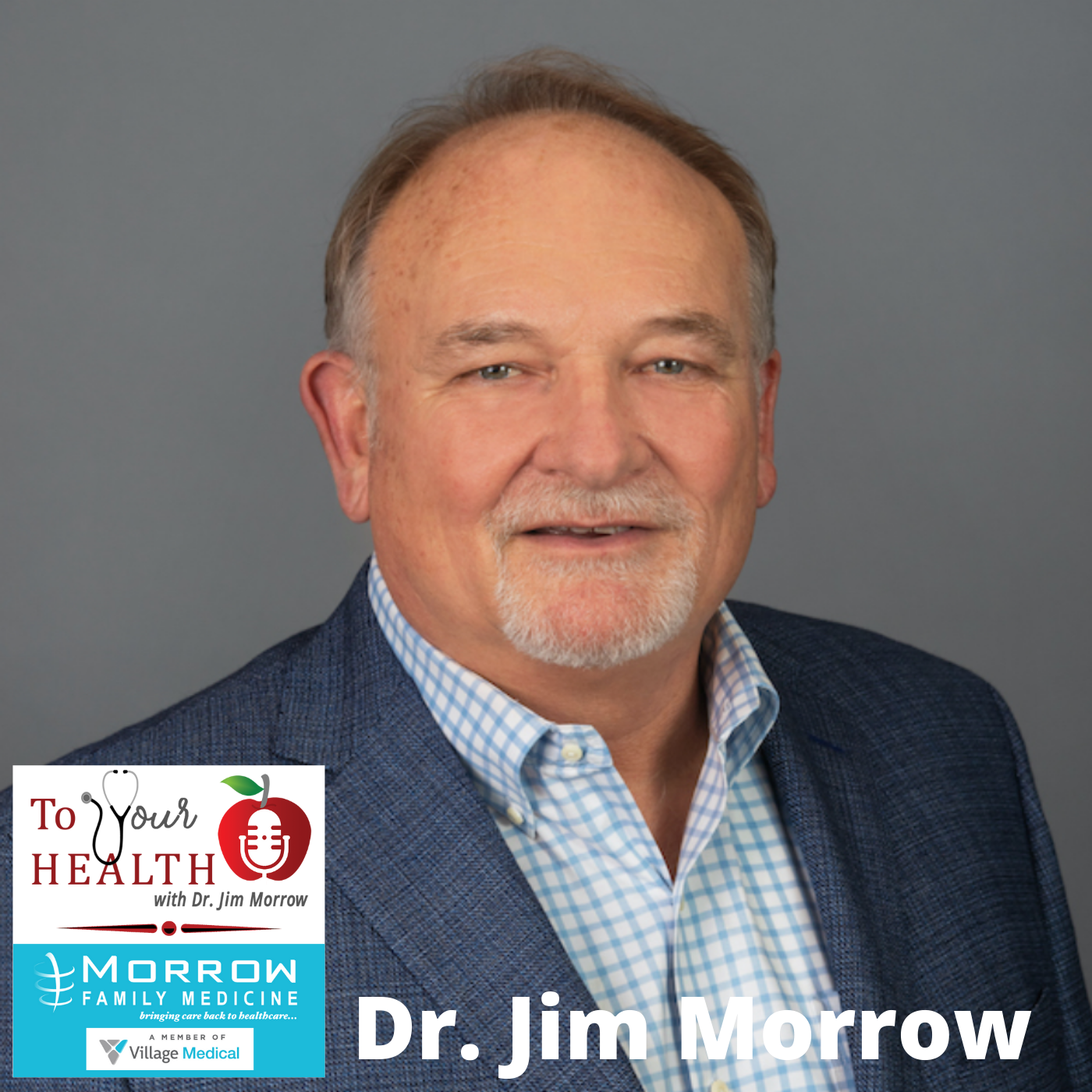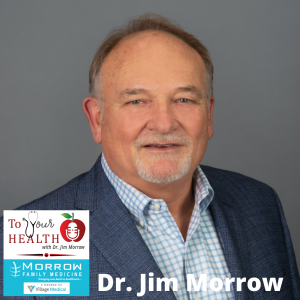
About Morrow Family Medicine, A Member of Village Medical
Morrow Family Medicine, a Member of Village Medical, is an award-winning, state-of-the-art family practice with offices in Cumming and Milton, Georgia. The practice combines healthcare information technology with old-fashioned care to provide the type of care that many are in search of today. Two physicians, three physician assistants and two nurse practitioners are supported by a knowledgeable and friendly staff to make your visit to Morrow Family Medicine, A Member of Village Medical one that will remind you of the way healthcare should be. At Morrow Family Medicine, a Member of Village Medical, we like to say we are “bringing the care back to healthcare!” The practice has been named the “Best of Forsyth” in Family Medicine in all five years of the award, is a three-time consecutive winner of the “Best of North Atlanta” by readers of Appen Media, and the 2019 winner of “Best of Life” in North Fulton County.
Village Medical offers a comprehensive suite of primary care services including preventative care, treatment for illness and injury, and management of chronic conditions such as diabetes, congestive heart failure, chronic obstructive pulmonary disease (COPD) and kidney disease. Atlanta-area patients can learn more about the practice here.
Dr. Jim Morrow, Morrow Family Medicine, and Host of To Your Health with Dr. Jim Morrow
 Dr. Jim Morrow is the founder and CEO of Morrow Family Medicine. He has been a trailblazer and evangelist in healthcare information technology, was named Physician IT Leader of the Year by HIMSS, a HIMSS Davies Award Winner, the Cumming-Forsyth Chamber of Commerce Steve Bloom Award Winner as Entrepreneur of the Year and he received a Phoenix Award as Community Leader of the Year from the Metro Atlanta Chamber of Commerce. He is married to Peggie Morrow and together they founded the Forsyth BYOT Benefit, a charity in Forsyth County to support students in need of technology and devices. They have two Goldendoodles, a gaggle of grandchildren and enjoy life on and around Lake Lanier.
Dr. Jim Morrow is the founder and CEO of Morrow Family Medicine. He has been a trailblazer and evangelist in healthcare information technology, was named Physician IT Leader of the Year by HIMSS, a HIMSS Davies Award Winner, the Cumming-Forsyth Chamber of Commerce Steve Bloom Award Winner as Entrepreneur of the Year and he received a Phoenix Award as Community Leader of the Year from the Metro Atlanta Chamber of Commerce. He is married to Peggie Morrow and together they founded the Forsyth BYOT Benefit, a charity in Forsyth County to support students in need of technology and devices. They have two Goldendoodles, a gaggle of grandchildren and enjoy life on and around Lake Lanier.
Facebook: https://www.facebook.com/MorrowFamMed/
LinkedIn: https://www.linkedin.com/company/7788088/admin/
Twitter: https://twitter.com/toyourhealthMD
The complete show archive of To Your Health with Dr. Jim Morrow addresses a wide range of health and wellness topics, and can be found at www.toyourhealthradio.com.
Dr. Morrow’s Show Notes
Covid-19 Update
“Check my antibodies” – says nothing about immunity – need a vaccine anyway.
Variants – vaccine works well so far against these new and increasingly important viruses. Previous infection does nothing to prevent infection by these variants.
“The vaccine is not a vaccine, it is gene therapy.”
“I don’t want people to get the vaccine if they live with me because then I can get the virus from them.”
HCQ has been in the news again recently. Some REPORTS, not STUDIES, said that it might help those on a ventilator. So far, All of the SCIENCE says that it does not stop this virus.
What is Irritable Bowel Syndrome (IBS)?
Irritable bowel syndrome (IBS) is a gastrointestinal (GI) disorder. It describes a group of symptoms that affect your large intestine with no known cause. IBS is common and occurs most often in women. People with a family history of IBS are more likely to have it.
Symptoms of Irritable Bowel Syndrome
Common symptoms of IBS include:
- Abdominal pain and cramping that usually comes and goes, with relief after a bowel movement
- Bloating and gas
- Constipation and/or diarrhea
- Feeling like you need to have a second bowel movement right after finishing one (often with no results)
- Mucus in your stool
IBS symptoms vary for each person. You may have some or all of the symptoms listed above. You may even have normal bowel movements some days. Most people have mild symptoms, but some symptoms may be severe enough to affect your daily life.
What causes Irritable Bowel Syndrome?
There is no exact cause of IBS. Doctors believe that a mix of problems with your GI tract can lead to IBS. Health problems that are known to cause or worsen IBS include:
- A breakdown in how your brain sends signals to your intestines
- Trouble processing food through your GI tract
- Abnormal nerves in your GI tract that are more sensitive than normal
- A bacterial infection in your GI tract
- An increase or change in bacteria in your small intestine
- Reactions to certain foods or drinks
- Mental health issues, such as depression and anxiety
- Extreme stress
How is Irritable Bowel Syndrome diagnosed?
- There aren’t any tests that detect IBS. However, your doctor can look for a pattern in your symptoms. Also, your doctor can order tests to rule out other problems. These tests may include a blood test, a stool test, a colonoscopy, or X-rays of your lower GI tract.
- Your doctor will perform an exam of your abdomen. They will check for bloating, pain, tenderness, or unusual sounds. Your doctor will ask you:
- If your pain improves or gets worse after a bowel movement
- How often you have a bowel movement
- What your bowel movements look like
- You may be diagnosed with IBS if you’ve had symptoms weekly for 3 months and your symptoms started at least six months ago.
Types of IBS
There are three main types of IBS.
IBS with constipation (IBS-C)
On days with at least one abnormal bowel movement, you have:
- Hard or lumpy stools at least 25% of the time
- Loose or watery stools less than 25% of the time
IBS with diarrhea (IBS-D)
On days with at least one abnormal bowel movement, you have:
- Hard or lumpy stools less than 25% of the time
- Loose or watery stools at least 25% of the time
Mixed IBS (IBS-M)
On days with at least one abnormal bowel movement, you have:
- Hard or lumpy stools at least 25% of the time
- Loose or watery stools at least 25% of the time
Can Irritable Bowel Syndrome be prevented or avoided?
Since there isn’t a single cause for IBS, you can’t prevent or avoid it.
Treatment for Irritable Bowel Syndrome
The best way to treat IBS is to make lifestyle changes. Treatment is different for everyone. You may need to try several options to find the one that works for you. Your doctor will guide you in which options to try. They may suggest you:
Visit with a dietitian for tips on foods that are easy to digest. You may need to avoid caffeine, dairy, some fruits and vegetables, spicy and fatty foods, and foods made with gluten. Gluten foods include cereal, pasta, and processed foods.
- Eat small meals throughout the day.
- Increase your fiber a little at a time.
- Reduce your stress level.
- Get enough sleep.
- Exercise regularly.
- Try meditation or therapy.
- Take medicines. Your doctor will advise you about which ones may work for your type of IBS.
Living with Irritable Bowel Syndrome
IBS is an ongoing problem. It can subside or flare up, based on your lifestyle. IBS does not require surgery, and it won’t shorten your life. If you have IBS, talk to your doctor about how to manage it. Symptoms often get better with treatment.















